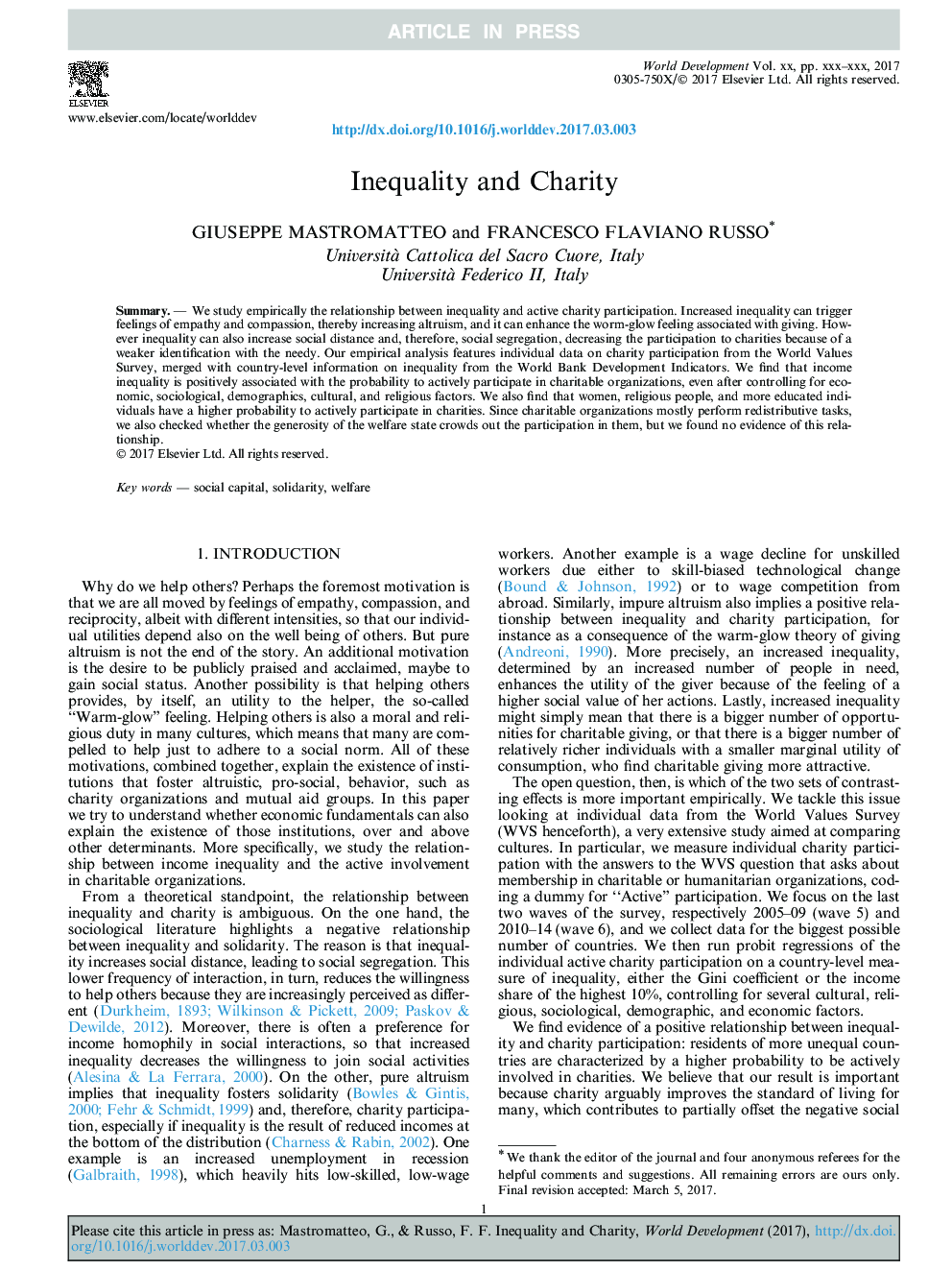| Article ID | Journal | Published Year | Pages | File Type |
|---|---|---|---|---|
| 5105053 | World Development | 2017 | 9 Pages |
Abstract
We study empirically the relationship between inequality and active charity participation. Increased inequality can trigger feelings of empathy and compassion, thereby increasing altruism, and it can enhance the worm-glow feeling associated with giving. However inequality can also increase social distance and, therefore, social segregation, decreasing the participation to charities because of a weaker identification with the needy. Our empirical analysis features individual data on charity participation from the World Values Survey, merged with country-level information on inequality from the World Bank Development Indicators. We find that income inequality is positively associated with the probability to actively participate in charitable organizations, even after controlling for economic, sociological, demographics, cultural, and religious factors. We also find that women, religious people, and more educated individuals have a higher probability to actively participate in charities. Since charitable organizations mostly perform redistributive tasks, we also checked whether the generosity of the welfare state crowds out the participation in them, but we found no evidence of this relationship.
Keywords
Related Topics
Social Sciences and Humanities
Economics, Econometrics and Finance
Economics and Econometrics
Authors
Giuseppe Mastromatteo, Francesco Flaviano Russo,
